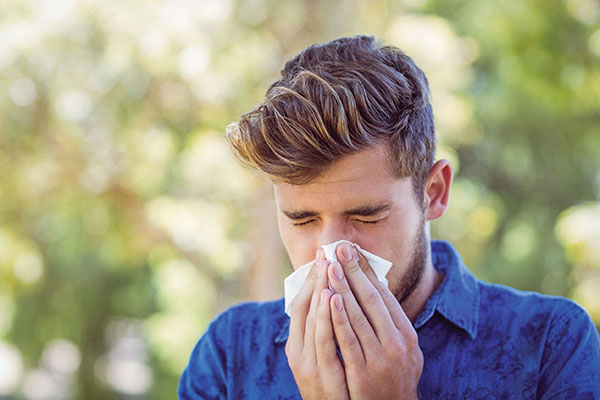Got Seasonal Allergies?
Know Which Medications Work Best to Manage Your Symptoms
It’s a puzzle for anyone with seasonal allergies – which medication should I take to help me deal with hard-to-manage symptoms like sneezing, wheezing, itchy eyes, and fatigue?
There are no easy answers because no two people are the same. However, a new practice guideline from the American College of Allergy, Asthma and Immunology and the American Academy of Allergy, Asthma and Immunology helps guide people with allergies through which medications might work best, and how much is needed to get symptoms under control.
“Bottom line, very few people suffer from the same allergies or symptoms,” says allergist and ACAAI president Bradley Chipps, MD. “You have to create a personal treatment plan by first avoiding the things you’re allergic to, and then treating your specific symptoms. The question for many people is whether over-the-counter remedies are enough, or if prescription medications are needed.”
According to the new practice guideline from the ACAAI Joint Taskforce on Practice Parameters, which is composed of members from ACAAI and AAAAI, more medications aren’t necessarily the way to go. Nasal steroid sprays are extremely effective and easy to get. They’re also relatively inexpensive and don’t have a lot of side effects. They are a good place to start for those over the age of 12, according to the guidelines.
“The guidelines recommend nasal steroid sprays as the first line of defense instead of an oral antihistamine,” says allergist Dana Wallace, MD, past ACAAI president and coauthor of the guideline. “The task force didn’t find evidence of better results if oral antihistamines were added to treatment along with the nasal steroid sprays. And oral antihistamines can cause sleepiness.”
For people with moderate to severe seasonal allergies who are older than age 12, the guidelines suggest adding an intranasal antihistamine spray to treatment, along with a nasal steroid inhaler. The additional medication provides added benefit for those with more severe allergies.
Allergists advise people to start taking medication two to three weeks before symptoms normally start. According to the ACAAI, if you begin your allergy medications before the worst symptoms hit this spring, your symptoms won’t be as bad. Although people think spring starts in April, symptoms can begin earlier in warmer areas. Keep in mind when your symptoms normally appear, and start your medication well in advance.
Additionally, when springtime arrives, many people go in search of “natural” remedies. They might not know that immunotherapy – in the form of allergy shots or tablets – is a very natural treatment. With allergy shots, you are given gradually larger doses of your exact allergens. The slow increase causes your immune system to become less sensitive, which reduces future allergy symptoms. Allergy tablets – taken under the tongue – are available to treat pasture grass, ragweed, and house dust mite allergies. However, to be effective, they must be started eight to twelve weeks before the allergy season begins.
Allergies can be challenging to treat, but there’s no reason to lose hope for relief. Many treatments are available to help you breathe easier this allergy season. A board-certified allergist can help identify your allergens and treat your symptoms. They can suggest the most appropriate medications to treat your seasonal allergies and asthma.
Know your triggers.
You may think you know that pollen is causing your symptoms, but other substances may be involved as well. More than two-thirds of spring allergy fighters actually have year-round symptoms. Your doctor can help you find the source of your suffering and stop it, not just treat the symptoms.
Avoid your triggers.
- Monitor pollen and mold counts. Weather reports in newspapers and on radio and television often include this information during allergy seasons.
- Keep windows and doors shut at home and in your car during allergy season.
- To avoid pollen, know which pollens you are sensitive to and then check pollen counts. In spring and summer – during tree and grass pollen season – levels are highest in the evening. In late summer and early fall – during ragweed pollen season – levels are highest in the morning.
- Take a shower, wash your hair, and change your clothes after you’ve been working or playing outdoors.
- Wear a NIOSH-rated 95 filter mask when mowing the lawn or doing other outdoor chores, and take appropriate medication beforehand.
If you think you might be one of the more than 50 million Americans that has allergies or asthma, the ACAAI can help you find an allergist in your area. Check out their “Find an Allergist” locator at AllergyandAsthmaRelief.org.
Source: American College of Allergy, Asthma & Immunology, AllergyAndAsthmaRelief.org
This article was published in Coping® with Allergies & Asthma magazine, Spring/Summer 2018.


